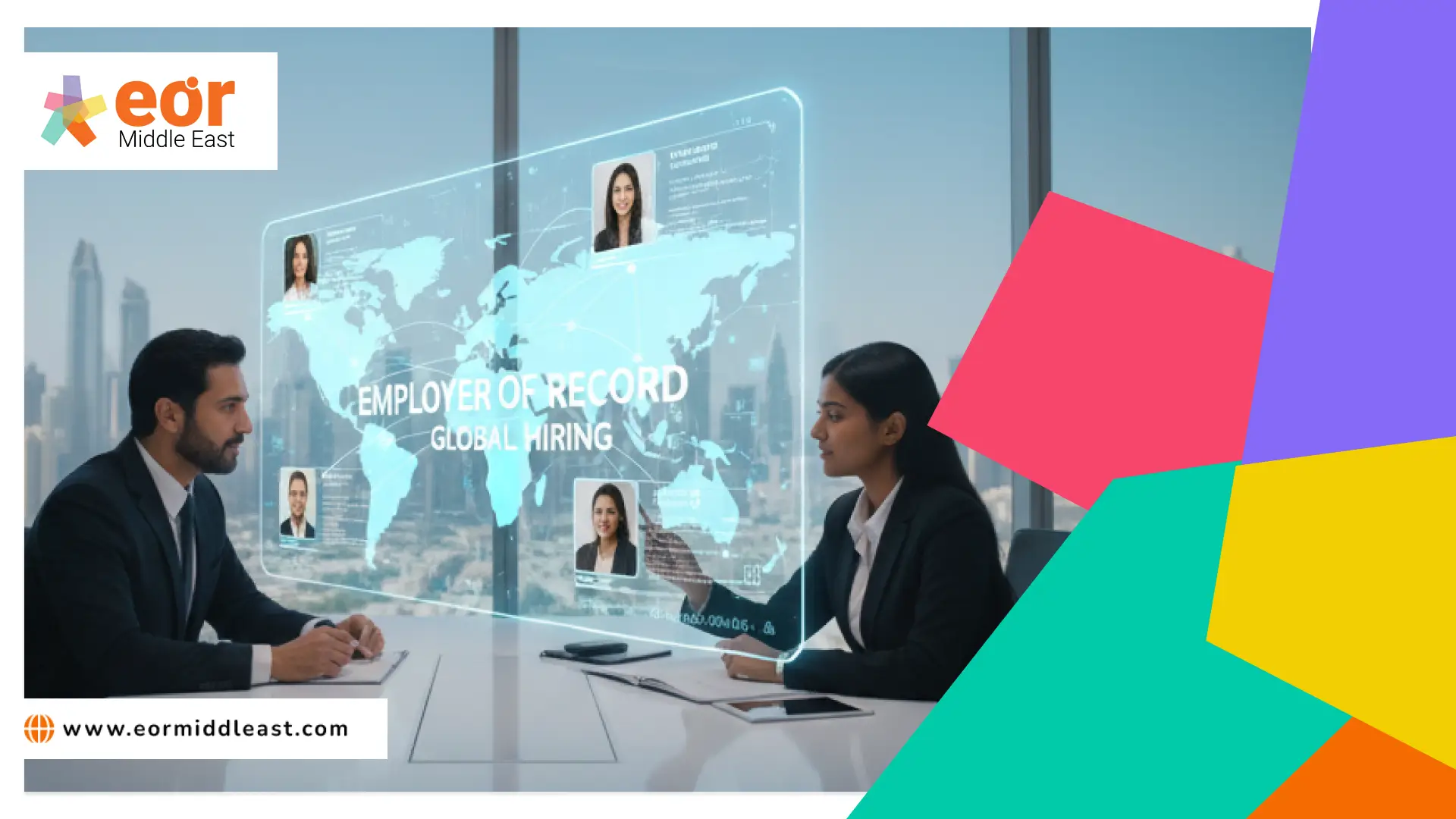Undoubtedly, hiring qualified employees is one of the most difficult tasks for a company. As a result, most businesses decide to opt for an employer of record for independent contractors so they can fill their open positions easily. Fortunately, this can reduce the cost of leveraging independent contractors.
In this article, you will learn everything you need to know about the employer of record for independent contractors. Finding a solution for your business problems can be quite complicated. Therefore, you may want to get some help from experts to obtain a fast and reliable result. Let us see:
- What is an employer of record?
- What are the responsibilities and obligations of an employer of record?
- Why do you need an employer of record for your company?
- What are the benefits of having an employer of record?
- Disadvantages of having an employer of record
- How can you choose an employer of record service for your business?
- What are some of the distinctions between an EOR and an independent contractor?
- Is there a difference between an EOR and a GEO?
- Are there alternative options to using an employer of record?
- How can EOR Middle East help you get more information about employers of record?
1. What is an employer of record?

It is a third party contracted to take responsibility for all formal employment tasks. Consequently, it can be useful for those companies that decide not to hire an employee directly, whether in another province or a foreign country.
There are various terms to refer to an employer of record. Often called a local employer, a local partner, a local EOR, a back-office recruiter. Indeed, an employer of record is in charge of recording for the worker but does not have any supervisory or managerial role with the employee. The original employer maintains the substantive employment relationship and is the one who makes all decisions regarding compensation, tasks, projects, and termination of the contract.
Next, let us see some of the functions of a local employer:
- Grants a registered entity to maintain local and compliant payroll.
- Organize all visas and work permits for the employee, thus avoiding delays and refusals.
- Advises the client regarding advance notifications, contract termination rules, and settlements.
- Adheres to labor laws regarding local contracts and worker protection.
- It is an interface in the host country between the government authorities and the employees.
2. What Are the Main Duties and Obligations of an Employer of Record?
The client company or recruitment agency has control of business operations and is responsible for workplace compliance and safety. On the other side, the employer of record assumes the responsibilities and obligations of employment matters such as administration, payroll, taxes, benefits, and more.
In addition, is responsible for complying with tax laws, so the company can rest assured that its business is in the hands of qualified professionals. Although they are regularly working together, the employer of record and the recruitment agency have different roles in the company.
To sum up, the employer of record is in charge of employment issues along with payroll compliance and tax laws.
3. Why do you need an employer of record for your company?
There are plenty of reasons you should hire an employer of record, the predominant one is overcoming the regulatory and cost hurdles when employing remote workers. Nevertheless, keep in mind that every country (and some states or regions) has its employment, payroll, and work permit requirements for non-resident companies doing business.
Meeting these rules can be quite challenging to business expansion across international borders. The DIY approach of incorporation and running a local payroll may be worthwhile if the company commits to a country.
The employer of record has the function of being used as the core of a comprehensive global employment organization (GEO) solution that makes foreign employment simple for any size company. As a result, it is very effective for ex-pats and residents. Hence, it is in full compliance with the host country’s laws. Subsequently, you can avoid the risk of violating labor, tax, and employment regulations since there is an EOR solution available in almost any country.
4. What are the benefits of having an employer of record?
As you can see, there are many reasons for using an employer of record. In most cases, the EOR has great benefits when doing business in foreign countries. Next, we will dive into the benefits of having an EOR in your business. Let us see:
4.1 No essential local incorporation
Many companies can spend time and money setting up a foreign subsidiary. However, when using a GEO, local employer of record represents a better alternative. Consequently, the GEO already has a legal entity in place that can handle all aspects of employment, payroll, and immigration requirements in the host country.
Indeed, the employer of record is an intermediary between the client and the company. The EOR has the network and expertise to ensure full compliance with all laws and regulations.
4.2 Immigration
There is constant shifting when it comes to immigration rules and policies. Foreign government work permits, visas, or any type of business activity can turn into very complex processes. Thus, compliance represents the number one challenge for companies since immigration violations can have lasting consequences for a company and its employees.
In order not to risk non-compliance with immigration laws, some companies rather use a local employer of record. Therefore, the employers are legally permitted to work in the host country, eliminating the issues with the overuse of business visas, remote payroll, and multiple entries into the country.
In summary, the local partner will handle the entire work permit and visa requirements, avoiding any scrutiny or complications from immigration authorities.
4.3 Local payroll in the host country
Keep in mind that most countries require a company with employees on assignment. Consequently, you can run payroll according to local standards with a registered entity. The practice of remote payroll is rarely permitted, especially for long-term assignments.
One of the key aspects when running a host country payroll is the calculation and withholding of statutory deductions from pay. This includes pensions, health insurance, and taxes. Subsequently, the employer of record is in charge of all of these critical details, to ensure the payroll is accurate and compliant for each employee on assignment.
As a result, the employer of record is an excellent employment solution. He or she provides the required entity to run payroll with expertise in host country withholding and tax rules. In this manner, they can ensure there are no issues with local authorities. Additionally, it is the most cost-effective way to quickly deploy employees abroad.
5. Disadvantages of having an employer of record
We have already seen some of the benefits that come along with using an employer of record for your business. Nevertheless, there are several limitations you need to know before making a decision. This will depend on the employment needs and business strategy of the company.
5.1 Capacity of employees
It may not be useful for more than 10 employees in one country. In case companies want a major expansion into a country, they would probably opt to incorporate an entity, hire local experts and manage the payroll process on their own. In this way, the employer of record may only be an interim solution to get employees hired quickly.
5.2 Receptivity of employees
Bear in mind that some employees are skeptical when it comes to having a local EOR being the legal employer, although it is only for administrative purposes. This is because the employer gives up control of the host country’s payroll process. On the hand, this may be an entirely new concept for some companies. Therefore, it may run counter to traditional business ideas of direct employment.
5.3 Contracts
Since the contract is between the EOR and employee, the organization does not have independent standing to assert its rights locally and relies on the EOR to handle any claims. Nevertheless, some contracts do give the company rights to have the employer of record work in their interest and remain in compliance.
6. How can you choose an employer of record service for your business?
To make a good decision, you should ask yourself the following questions:
- Does the employment contract fit your company’s interests?
- Has the employer of record had the experience working with businesses similar to yours?
- What is the employer of record performance record and service history?
- Do you need the employer of record service only?
- Will you need additional services?
- What are the contract length for your business and the notice period for termination?
- How do their fees and rates work?
7. EOR vs Independent Contractor: Key Differences You Should Know
Independent contractors work as a small entity that contributes towards performing professional services for other entities. They can work for multiple clients, pay their taxes, and manage their health benefits along with other instances. However, there are some limitations when it comes to independent contractors:
With an independent contractor, you would have to deal with several tasks since they are hired short-term, so you might not get the same worker for the next project. In addition, they tend to lose track of the progression of the task or its execution. Therefore, there is no oversight of their performance until the work has been completed.
8. Is there a difference between an EOR and a GEO?
It is crucial to notice the difference between them, let us see a simple way to know how they differ from each other:
The global employment organization is an international system that uses the employer of record in each country of employment. Firstly, the GEO begins the relationship with the client or company, and then hands off the employee to the EOR for onboarding and payroll.
As a result, the GEO acts as a supervisor of the EOR/employee/client relationship, to make sure that all deadlines are met, and that there are no issues with compliance. There is a single GEO structure, but there are many EORs employing individuals locally in multiple host countries.
9. Are there alternative options to using an employer of record?
There is the PEO, also known as a professional employment organization. This is another type of third-party service that has a similar role. However, it is less comprehensive compared to a GEO. A PEO is mostly used in countries where there are different employment and reporting requirements between states and regions.
It can be a complicated task for small businesses to meet all of these rules on their own. Therefore, they will use a PEO for assistance. Although it provides help with local payroll, registration, and compliance steps, it does not take over the full legal employment role as a GEO/EOR does.
10. ow EOR Middle East Can Help You Learn About Employers of Record
EOR Middle East is a platform with a range of services aimed to help companies enter new markets in our supported countries in the Middle East, such as Saudi Arabia, Egypt, Israel, Qatar, Lebanon, Turkey, and many more.
We have many years of experience in the market with a high percentage of success rate and several recognitions. Therefore, EOR Middle East guarantees rapid and effective solutions for your company. Hence, if want to get an employer of record, do not hesitate to contact us!

Would you like to contact EOR Middle East to obtain more information about employers of record? If you want us to support your business with our expertise, you can send us an email at [email protected] or give us a call at +971 43 316 688.


